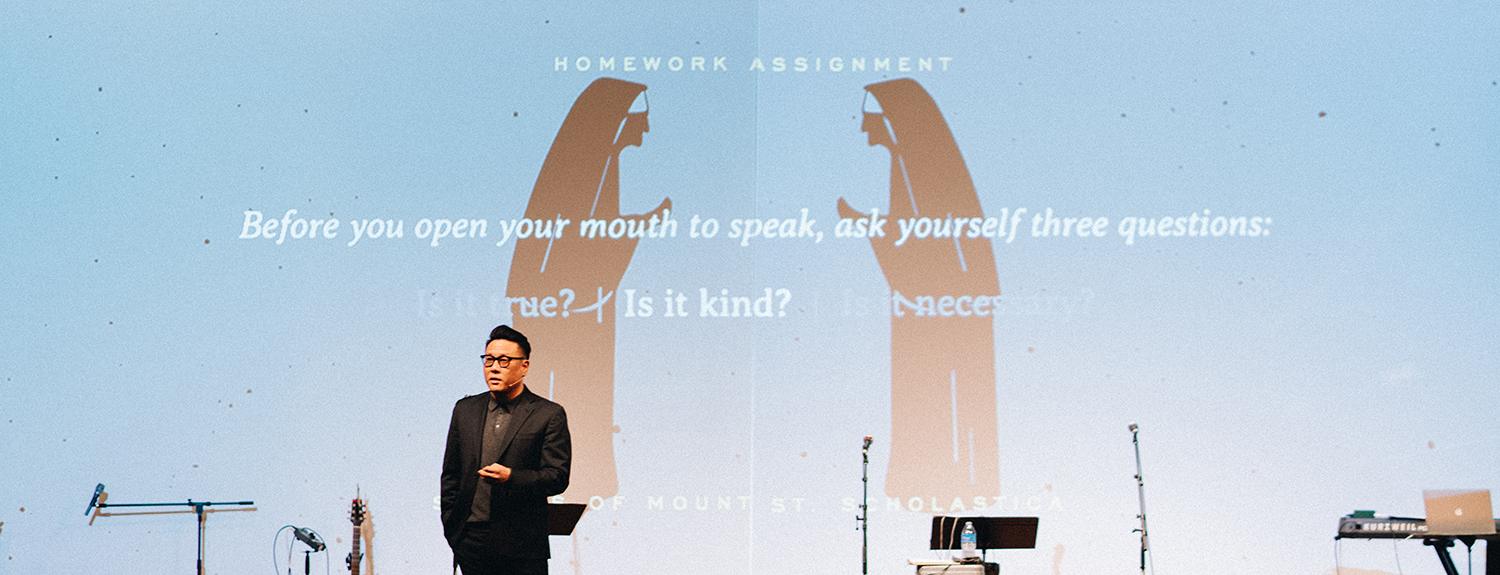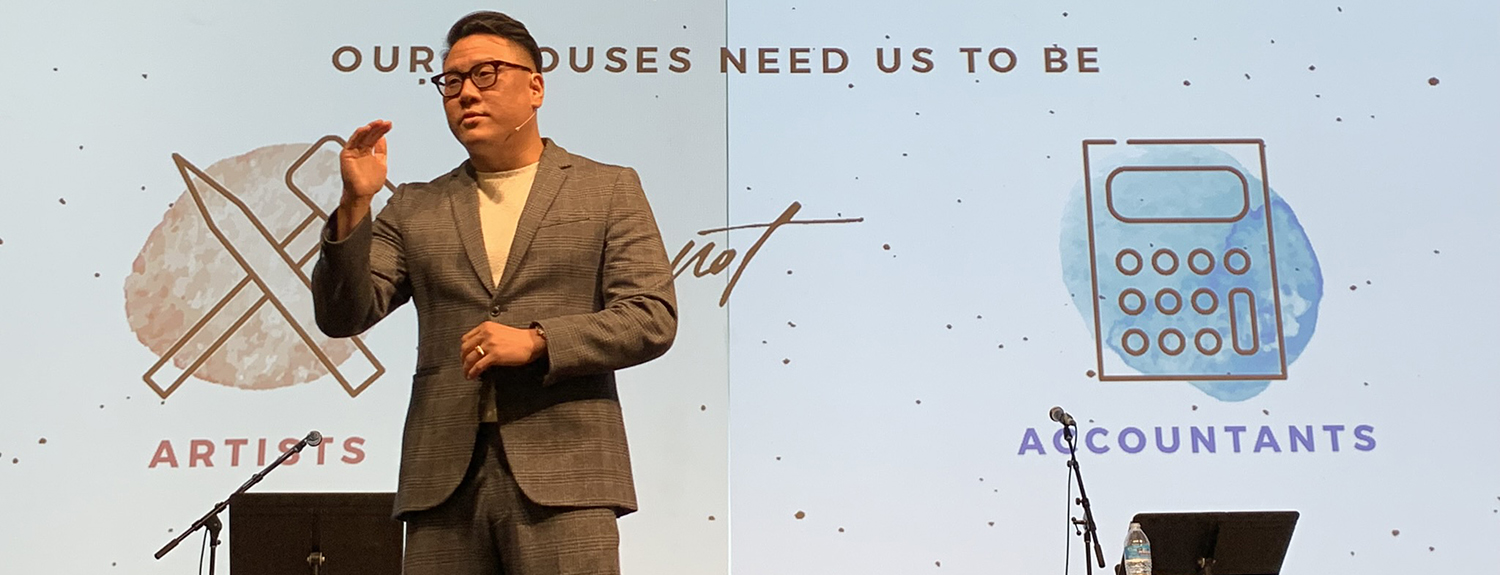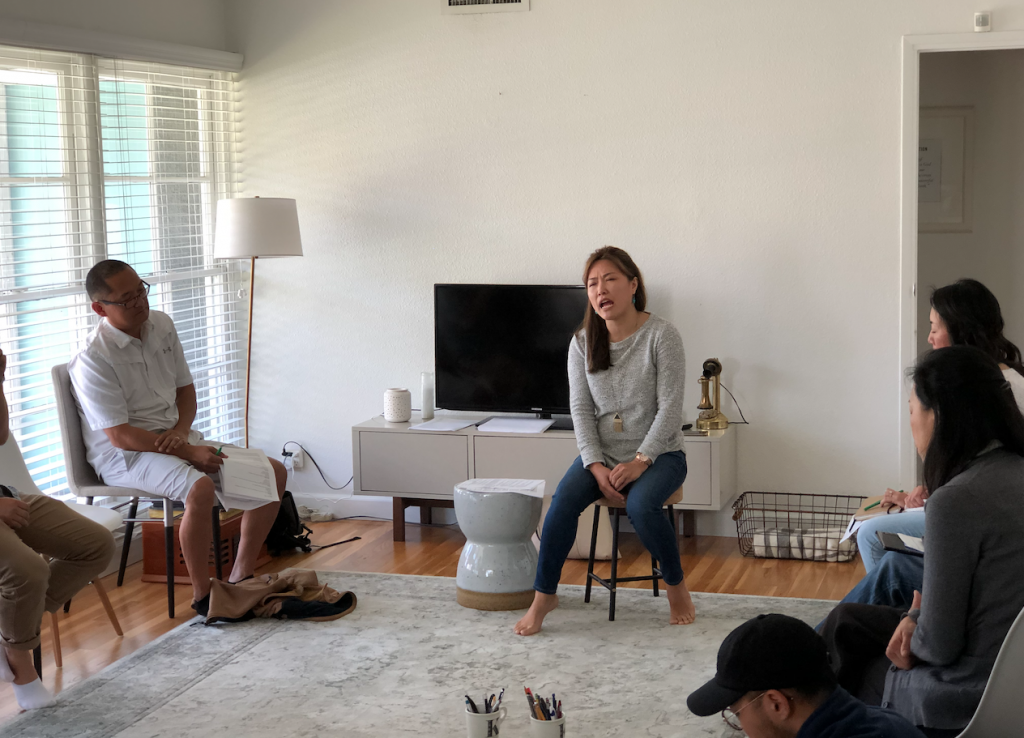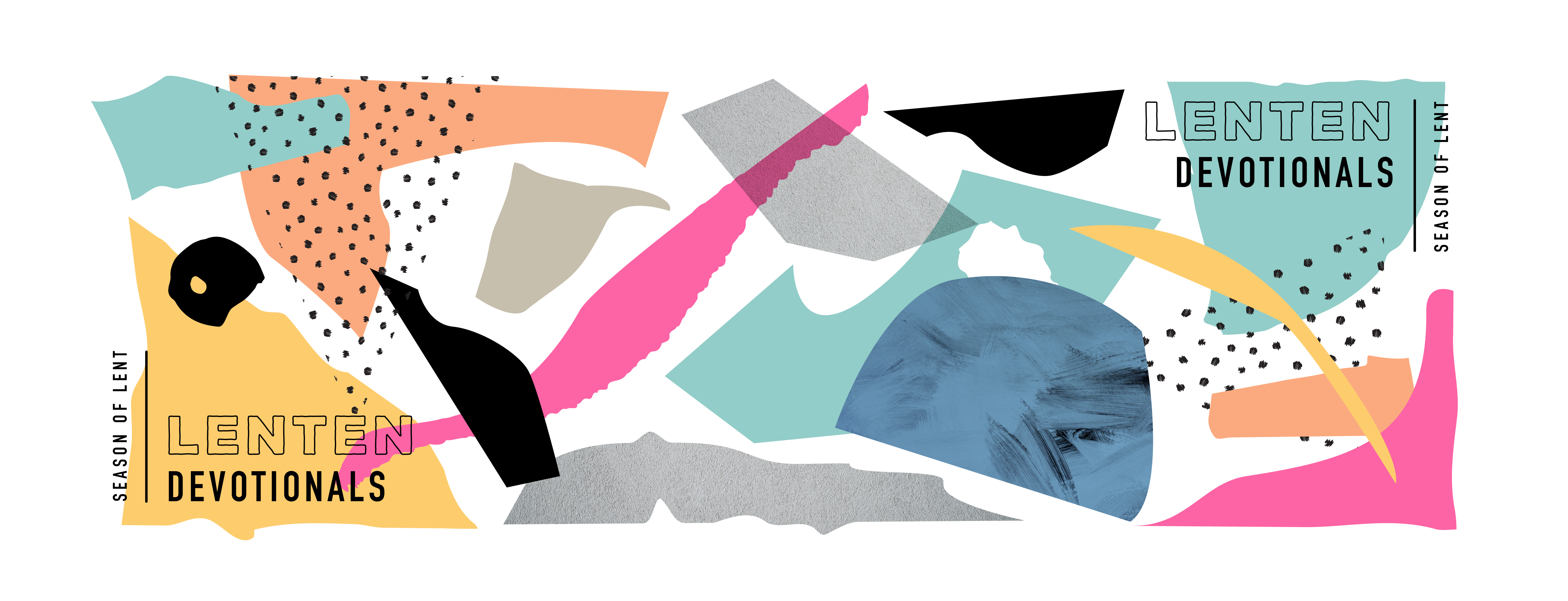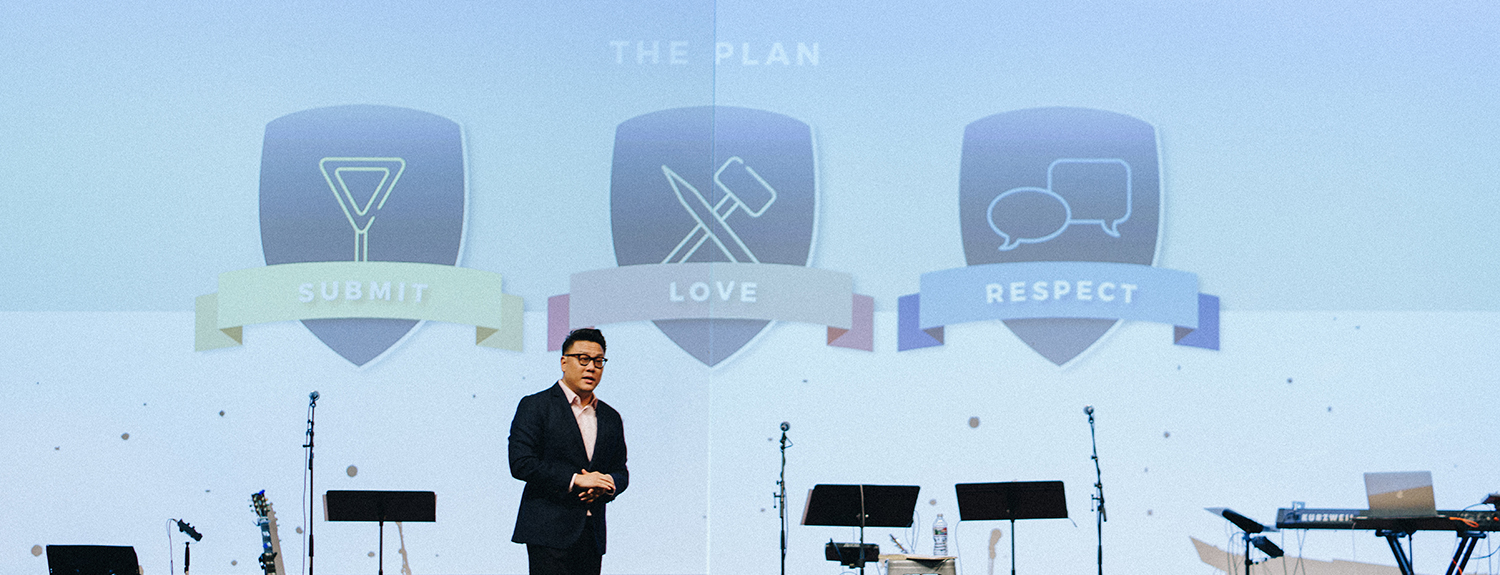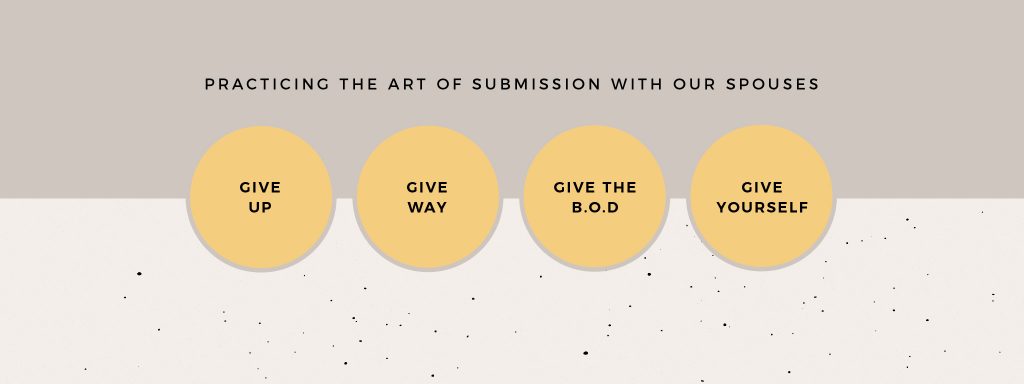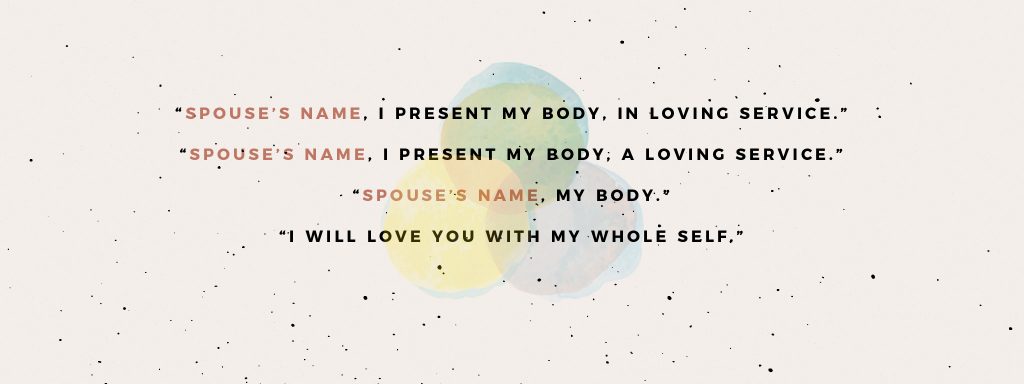When we are united, marriage has the potential to preach and plant the seeds of the gospel in the world. But the problem is we often dissolve unity due to a lack of love and a lack of respect.
So how do we stay unified?
Paul writes to the church of Ephesus, “Submit to one another out of reverence for Christ… each one of you must love his wife as he loves himself and the wife must respect her husband.”

Respect is often communicated in our tone and the way we talk to our spouse. We can disrespect our spouses with criticism and contempt.
Criticism attacks your spouse’s character and assumes the worst of the person.
Examples of criticism (adapted from Dr. John Gottman):
- “You’re always talking about yourself! You never care about what I have to say!”
This communicates: “You’re narcissistic, a bad wife/husband. You are not caring.”
- “You said you’d wash the dishes, but there’s still a pile in the sink. You never do what you say you will.”
This communicates: “You are lazy, You are irresponsible.”
- “Come on, we’re going to be late! Are you just being slow on purpose?”
This says, “This act or misbehavior shows that your intentions are bad, hence you are not loving, thoughtful…”
Criticism is the leap from observation to judgment about the person.
Criticism makes the person defend their character and intentions.
The other way we disrespect our spouses and cause disunity is through contempt. (According to Dr. Gottman, the presence of contempt is the top indicator that a marriage is heading toward disaster)
Contempt assumes a position of moral superiority over your spouse.
Examples of contempt (adapted from Dr. John Gottman):
- “Look, I learned how to tell time when I was five years old. When are you ever gonna learn?”
This communicates, “You are frustrating and stupid.”
- “We haven’t had sex in months. What, are you too busy flirting with that guy at work? Why don’t you just marry him instead?”
What this actually says, “You are unloving, maybe unfaithful, you have that potential more than I do, you should be ashamed of yourself. I love better than you. I am too good for you.”
- “You’re ‘tired?’ Cry me a river. I’ve been with the kids all day, running around like mad to keep this house going and all you do when you come home from work is flop down on that sofa like a child and play those idiotic video games. I don’t have time to deal with another kid. Could you be any more pathetic?”
What this says, “You are lazy and definitely not as diligent as me. You don’t deserve rest as I do, I am a harder worker, a better parent, than you. And my work is more important than yours.
This act or misbehavior shows that I am better than you, smarter than you, more skilled than you.”
A contemptuous spirit communicates: “Why aren’t you as good as me? Don’t I deserve better?”
Contempt makes the person defend their worth and value.
“We have grown so used to each other that some think they are free to say anything… at any time. They expect others to bear with their unkindness. Why not first try to hold your tongue? You know what you can do, but you do not know how much the other can bear.”
— Mother Teresa
How do we start talking with loving compassion and respect? We can take a page from the sisters at the Mount St. Scholastica:
Before you open your mouth to speak, ask yourself:
- Is it True? (Facts, truth and what is observed. Leave out assumptions or interpretations)
- Is it Kind? (How is your tone, attitude and posture? Is it kind and healing?)
- Is it Necessary? (Say only what helps. Let everything you say be good and helpful – Eph. 4:29)
The question we might be asking is, “Why does all of this matter anyway?” Why does unity in our marriages matter? Why should we treat our spouses with respect and with love?
Because this was God’s dream from the beginning.
Redemption isn’t just about our salvation, but about God getting what He has always wanted: His creation to become whole.

In the beginning, God created the heavens and earth.
“And God saw that it was good.”
— Genesis 1
What was good? God created by separating and joining back together. Light and darkness, land and water, man and woman. Two opposites being united in Him, for Him.
Creation’s unity in Him, for Him.
In separation, there is formation; in unity, we fulfill our purpose and bring glory to God.
But sin fractured creation and separated us from God and from each other.
It is only in and through Christ that we are united again and are able to give God His dream of a whole and united creation.
Because… In him we have redemption through his blood, the forgiveness of our trespasses, according to the riches of his grace, which he lavished upon us, in all wisdom and insight making known to us the mystery of his will, according to his purpose, which he set forth in Christ as a plan for the fullness of time, to unite all things in him, things in heaven and things on earth.”
– Ephesians 1:7-10 ESV
Hence, unity in marriage is giving God what He always wanted from the beginning. Something we couldn’t do until we lived into the redemption given to us by Jesus.
It is with this backdrop Paul uses unity as a signpost to the new creation in God through Christ! He is basically saying, “Creation, it’s happening again! And Christ is the glue that will help us stay together for the glory of God!”
A unified marriage is a signpost to the renewal of all things.
“Make every effort to keep yourselves united in the Spirit, binding yourselves together with peace.” – Ephesians 4:3
You can listen to the sermon Becoming and Staying One Pt. III from the Ephesians series that inspired this post here.
All images and materials are copyright protected and are the property of EKKO Church unless otherwise noted and credited to their maker. Please do not copy or distribute without permission.
